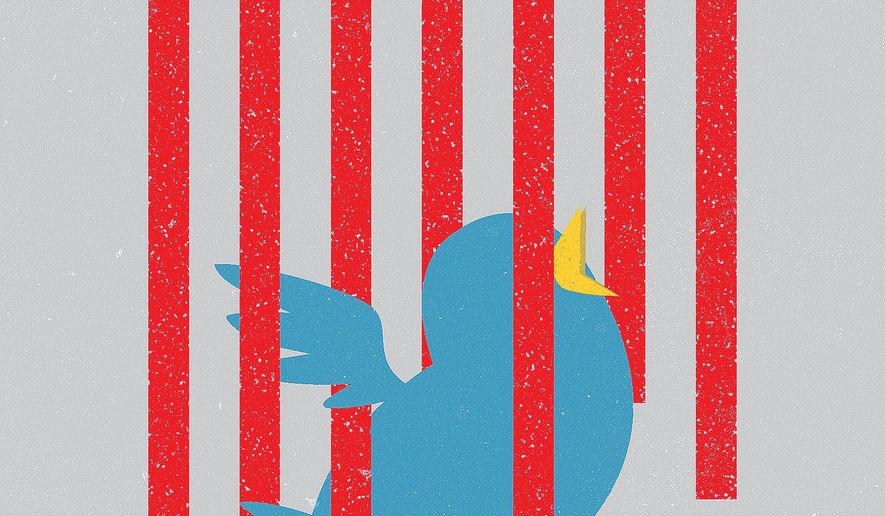OPINION:
Could you imagine the federal government shutting down access to Twitter or Instagram? How would it feel being cut off from YouTube, Bing and Periscope? How about not being able to use the chat and messaging services on Google?
Recently, news outlets covering the ongoing crisis in Venezuela reported that CANTV (Compañia Anonima Nacional Telefonos de Venezuela) — which is the Internet provider run by the government through which most people in that country access the Internet and fixed and mobile phone services, appeared to block or at least restrict access to these and other sites.
Why?
Information is power. And in our world today, digital is the most important medium.
To block the efforts of Juan Guaido to gain rightful control of the Venezuelan government, Nicolas Maduro and his supporters are trying to cut off all forms of unfiltered communication to the masses.
History shows us that dictators often seek to deny the people access to information to thwart revolutions. And in Venezuela, the government has historically had a heavy hand on the media.
Radio and television are censored by an organization sympathetic to the government, and most newspapers are owned by supporters of Mr. Maduro and his predecessor, Hugo Chavez.
Now, they are turning their efforts to blocking digital to stop dissent. We saw similar attempts in 2011, during the April Spring uprisings. Eight years ago, the government in Egypt shut down all access to the Internet. Now, it is happening again in our hemisphere.
Last week I wrote about how Venezuela is a real-time example of the failures of socialism — a system that promises prosperity and freedom but all too often brings poverty and oppression. Now, we see again that following a system that puts power into the hands of the few threatens access to information so vital in our digital age.
Yet another reminder of the folly of nationalizing the 5G system.
For months, I have been working with a team of experts to inform our leaders in Washington that efforts to centralize work on a 5G system are ill-conceived on principle, price and security. We can add concerns that centralizing our 5G efforts could unwillingly lead to blocking access to vital telecommunications (potentially under some future leader — particularly those who embrace the failed socialist policies of Mr. Maduro).
On principle, the way to address concerns about China’s involvement in the race to 5G is not to act like China. The government should not be involved in things that can be done as well or better in the private sector. The companies that gave us 4G can successfully get us to 5G.
We should put our faith in the American people and not in the federal government to advance this technology.
On price, telecommunications companies in the private sector are already advancing 5G. A nationalized approach would be more expensive, take longer and involve more bureaucracy.
A friend of mine once told me a story about his father calling the phone company to set up a landline at their home in Milwaukee, Wisconsin. A technician showed up the next day. This may seem like a mundane occurrence to most Americans, but it was nothing short of a miracle to my friend. He came to America from a country where it often took six months to get a phone installed.
My friend’s father explained the reason for the stark difference. See, in America the company responsible for installing the phone made money once it was in use — there was an incentive for the installation to be done quickly. In their native country, phone lines were the responsibility of the government and, therefore, there was no incentive to move fast.
This is one of the things that makes America great. We encourage private-sector competition, which leads to more quality choices and reasonable costs for consumers.
On security, the federal government can certainly restrict network equipment from China in America and government networks without needing to create a government-owned or government-controlled 5G network. It is why both the chair and the vice chair (Republican and Democrat) of the Senate Intelligence Committee signed onto legislation prohibiting a nationalized system for advanced cellular technology.
Presently, with the actions in Venezuela, we have yet another reason not to nationalize the deployment of 5G technology. Competition ensures that people will have multiple options for their cellular and Internet services. And it ensures that access to those technologies can never be blocked from one source.
We don’t want to live in a country that can block Twitter or Instagram, YouTube or Google. Increasingly, however, this issue is about much more than telecommunications. It is really about freedom. And serves as yet another reminder of the need to be vigilant against any and all encroachments on our liberties.
• Scott Walker was the 45th governor of Wisconsin. You can contact him at swalker@washingtontimes.com or follow him @ScottWalker.




Please read our comment policy before commenting.